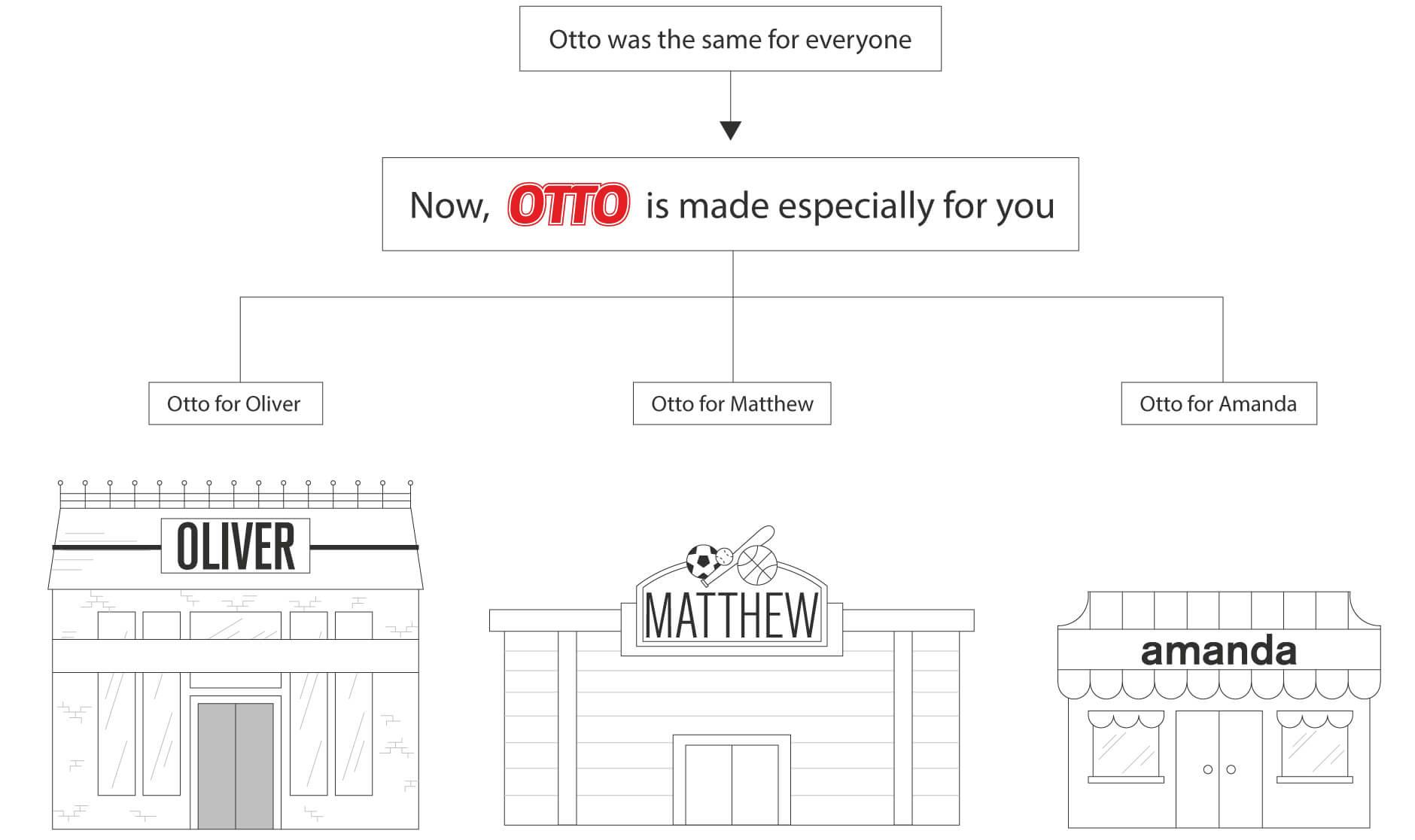
Slashes site catalog update time from 12 hours to 15 minutes
Online retailers have access to troves of data. They know more about their customers than the corner store shopkeeper knew decades ago. Smart retailers use that data to give shoppers a highly personalized, painless shopping experience. That’s how you attract – and keep – today’s customer.
OTTO is Germany’s top online retailer for fashion and lifestyle goods; the company turns over more than €2B per year and has more than two million daily site visitors. It has long held the customer at the center of its retail strategy. Yet existing systems were slowing it down – loading new catalog updates for two million products often took all day.
MongoDB helped OTTO shatter that metric. Updates that used to take 12 hours are now done in 15 minutes.
With a MongoDB-powered catalog, OTTO gets an edge with speed. It's fast to develop. Fast to load data. And fast to personalize a shopping experience for a great number of customers.
Personalization made fast
Slow reaction time is a conversion killer
The average customer doesn’t stay on an e-commerce web site for very long. OTTO has only 1-2 seconds to access customer profiles in real time and decide how to react.
This is especially challenging with a product catalog as diverse as OTTO’s. It offers one stop shopping for over 5,000 brands -- everything from jeans to sofas to stereo systems, each of which has a different set of attributes (such as name, color, size). In addition, product pricing and availability are dynamic, and need to be constantly refreshed to maintain competitive advantage.
Using a relational database to update a site with such variation in products and attributes is painful, often requiring reading from dozens of tables to update a single product. Querying is complicated. Scaling is slow and difficult.
MongoDB’s flexible data model erases that complexity and is well suited to an asset catalog. OTTO can quickly iterate data schema for changes to products, attributes and customer profiles – without taking the database offline or affecting performance. Plus, all product information can be read from a single JSON document, allowing for incredibly fast reads.
Complete insight into customer behavior hinges on analytics that take advantage of real-time data. This is what drives true personalization.
OTTO has scaled up to 800 page impressions per second that generate 10,000 events per second – every click, every hover is stored in MongoDB. This rich insight into shopping behavior enables OTTO to deliver a unique site with a personalized set of products, navigation and filters for every customer.

It can also move incredibly fast. In-memory speed and on-disk capacity have led to dramatically improved site response times. In addition, all touch points – browser, mobile, tablet – are integrated, so OTTO can deliver instantaneous personalization during each customer’s journey on the site.
The result is boosted engagement, revenue and a new way to deliver superior customer service.
Development Agility
OTTO needed fast results. MongoDB delivered.
Parallel teams spanning business, project management, and IT all individually chose MongoDB as the best tool to quickly and easily achieve results. MongoDB was the go-to preference for every team, even though the business problems varied. Today, each team has its own MongoDB installation to get done what it needs to do without any architectural governance on top. This is only possible because MongoDB has proven to be easy to use, easy to integrate and easy to operate.
With loosely coupled teams, architecture, and operations, OTTO has removed the bottleneck to deploy and test. Teams can easily correct errors and innovate risk-free. Complete autonomy means they move at speeds never before possible.
This move to agile development wasn’t mandated. It was inspired by MongoDB and driven by the teams. Now, both business and IT can produce fast results while staying focused on enterprise operation, scalability, request handling, and speed.
OTTO has successfully bridged two worlds: a lean approach and sustainable enterprise operations
In changing its operations, development, technology tools, and the way in which they cooperate, OTTO took a risk. But it was a risk worth taking – one that’s paying off for the business and for customers.
The Endless Aisle – Now Personalized
New channels. More traffic. An endless aisle of products. E-commerce is booming and OTTO is ready.
OTTO already has a strong foundation of a 65-year-old trusted brand, loyal customers, and innovative retail strategies. Now it has the stable, proven technology architecture and agile development to match – vital pieces that will propel it forward in the face of unknown challenges and growing demand.
